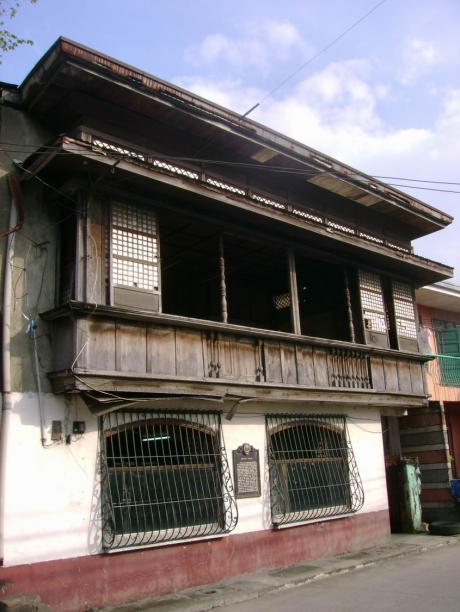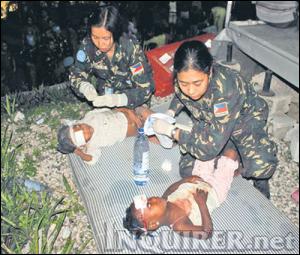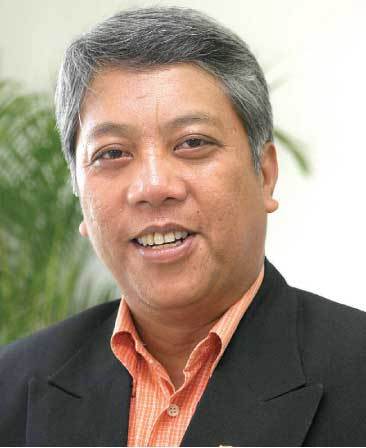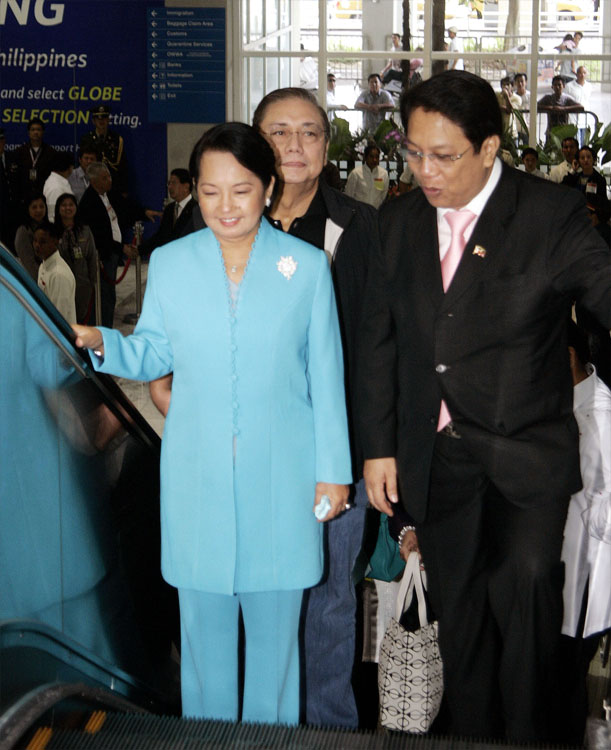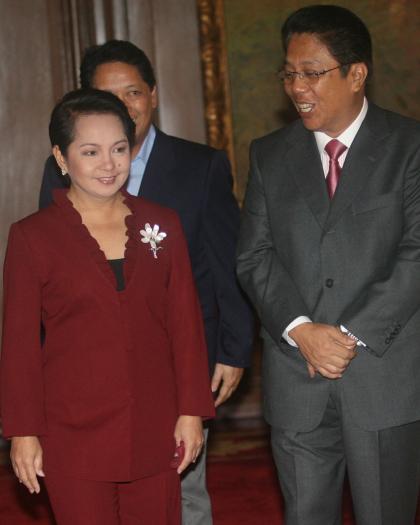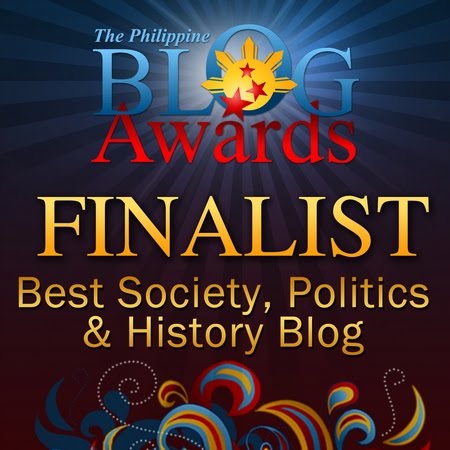I’d been having dreams lately, drunken dreams with their peculiar lucidity in which the Experience Trail, the High Seas seemed to call louder and louder, more and more insistently with a voice that was at the same time music—a siren’s song that almost threatened me if I refused to obey its quixotic urgings … –Sol Luckman–
The nuevas “Propagandistas” —el Señor Guillermo Gómez Rivera, Arnaldo Arnáiz, José Miguel García, and yours truly— convened for the first time this morning to discuss the formal founding of a website which would be the nucleus of our group (I playfully call it a “cyberclique”, LOL!!!).
We talked about our passion for Philippine History, how we got interested with the subject, and shared each other’s viewpoints on how to rectify the errors of this taken-for-granted field. Blithely, Señor Gómez likened us to Don Quijote, hopelessly fighting the windmills. We were like “madmen”, so to speak, because the topic of Philippine history is perceived to be reserved only in school. And we have to face it: we are like ants against rampaging elephants. But this knowledge that we have is our “curse”; we have to live with it. And we had to live through the somewhat belittled field of Philippine history for it encompasses everything that is truly Filipino, the very subject which in a way keeps us sane. For us, the study of Philippine history is a treasure trove of knowledge and discoveries about our past that has been taken away from us by a neocolonialist extragovernment.
After our meeting, I told the group that I’m so happy that our number has “grown”. This is because I thought that Señor Gómez and I are fighting a lonely war. The great Filipino scholar and I have known each other since 1997 (he’s been like a father to me). We’ve also been searching for like-minded people, but in vain. Historian priests Fr. José Arcilla, S.J., and Fr. Fidel Villaroel, O.P. would have been perfect allies. But as published men, they are on a league of their own. Besides, having them on board will only attract baseless and absurd accusations of “ecclesiastical bias” and “papism”. There’s also prolific researcher Pío Andrade, author of the highly controversial book The Fooling of America and a friend of Señor Gómez. But we couldn’t find him. And so it was a blessing that Arnaldo Arnáiz and I have met back in 2007; Having discovered who the real Filipino is through his own researches, he too started to look for like-minded individuals to whom he can share his thoughts. I happily introduced him to Señor Gómez (they later found out that they’re distant relatives). Then just last year, the mysterious José Miguel García found the three of us in cyberspace.
The rest, as they are wont to say, is history.
Some of those who know us should already have an idea of what we’re up to. This group, particularly the website that we’re planning to set up, will encompass everything that we’ve been fighting for all these years: the recovery of our national identity (which is based on our undeniable hispanic/latin physiognomy and culture), to counterattack the ludicrousness of the so-called leyenda negra (that the Americans “saved” us from the “evil clutches” of the Spanish Empire), the rectification of an ill-written and bigoted Philippine history, and the defense of the much maligned Catholic Church, the faith which brought the Western civilization to these once heathen shores. In one way or another, all this shall be realized by bringing back the Spanish language as an official language of the Philippines (or –perhaps– at the very least, to have it taught in all levels of education).
Here is a brief profile of my comrades:

We shall continue what our heroes fought for. The struggle for the conservation of our national identity espoused by one of the greatest Filipino Nationalists who has ever set foot on this planet, Senator Claro M. Recto, will never falter.
1.) ARNALDO ARNÁIZ has been a history buff for as long as he can remember. An astute researcher and a master when it comes to the life and psychology of national hero José Rizal, it is surprising to note that Arnáiz has had no formal training in historiography and historical research. He is, in fact, a business process outsourcing (BPO) professional and a jiu jitsu expert. Instead of taking up History, he pursued Computer Management and earned his degree from the University of Perpetual Help Rizal (now the University of Perpetual Help System DALTA).
Later on, Arnáiz took advantage of the BPO boom in 2002, earning six years of exceptional experience in call centers. His work ethic paid off in 2004 when he was promoted as a team leader (supervisor). In that designation, he helped lead a pioneer customer service account in APAC Customer Services, Inc., eventually winning the Best Team Leader award a year later. In between working as a call center supervisor and a traveler-photographer, he delves into the mangled world of Philippine history. Through his own, he was able to discover our true roots. But it wasn’t always that way in his younger years:
I’ve realized lately that I have become what I, as a younger man, hated to become: negligent of one’s history. When I was child, I can recall getting upset whenever my classmates would make fun of Bonifacio (the Andrés hatapang ‘di a tacbó joke). I don’t know why and where this started, but my history education as a child was better than the other kids in town. I have the luxury of learning from one of our well-off neighbours who had in their collection a vast array of titles, some are centuries-old books.
The rest of my History lessons was concluded in schools. Although the lessons were barely acceptable to my standards, I’ve always felt that it was insubstantial. In my adult years after college, I bought my own books to supplement my studies but not as avid as I once was. ‘Past is past’ they say, but unless you study them you will continue to make the same mistakes. As my favorite history quote goes, ‘One faces the future with one’s past’. I now try to regain some lost ground in my study of history. It’s never too late for all of us to study and preserve what is left.
A curious note: although Spanish is not his native language, Arnáiz is a staunch defender and advocate of the said tongue. Like the late non-Spanish-speaking senator, Blas P. Ople, this distant relative of Señor Gómez seriously deserves to be commended a Premio Zóbel medal once the said oldest literary award-giving body in the country is reactivated.
2.) To introduce Señor GUILLERMO GÓMEZ RIVERA would already be superfluous in the light of his myriad of accomplishments in the field of arts, literature, language, and history. He is described in Wikipedia as “a Filipino writer, journalist, poet, playwright, historian, linguist, and scholar of Spanish and British descent from the province of Iloilo”…
Gómez Rivera is an academic director of the prestigious Academia Filipina de la Lengua Española (Philippine Academy of the Spanish Language), the local branch of the renowned Real Academia Española based in Madrid, Spain, and part of the Asociación de Academias de la Lengua Española (Association of Spanish Language Academies). He is also a teacher of various Spanish dances, and is considered the undisputed maestro of Flamenco in the Philippines.
In addition to his contributions to Philippine literature and history, Gómez is also an accomplished linguist and polyglot. He speaks and writes fluently in his native Hiligaynon as well as in English and Tagalog. Aside from being an acclaimed master of the Spanish language in the country, he is also conversant in French, Italian, Portuguese, Kinaray-a, and Cebuano, and has made an extensive study of the Visayan and Chabacano languages.
Critics regard him as the Spanish equivalent to his friend Nick Joaquín’s English. Joaquín’s body of written works were discreetly about the “Hispanic soul” of the Philippines brought about by three centuries of Spanish rule. Joaquín’s stories in particular were sentimental, reminiscing the Philippine’s Spanish past as well as its decline. Gómez wrote on the same theme, more thoroughly about the decadence of the country’s “Hispanic soul,” but his style was much frank and straight to the point—the White Anglo-Saxon Protestants (WASPs) were the cause of Spanish decline in the Philippines. Also, unlike Joaquín, Gómez focused more on fiery essays than short stories.
He won a Premio Zóbel in 1975 for his play El Caserón (The Big House) which was published in 1976. He has since been a longtime master of ceremonies for the said award-giving body. Prior to this, Gómez won second place in the Premio Manuel Bernabé for an essay on the historical and nationalistic value and import of the Spanish language.
Much of the theme for Gómez’s poetry, as well as his essays and short stories, lie mainly on the destruction of which he calls the “Filipino Cosmos,” i.e., the destruction of Philippine languages and culture due to American neocolonization.
Gómez is a somewhat belligerent writer, as can be gleaned by his scathing attacks in his Spanish weekly newspaper Nueva Era against what he observed as local pro-compulsory “ONLY-English-language government officials” who he accuses as vile puppets of US WASP neocolonialism. Many of his writings boast of proofs against these people he accuses. Through his monumental body of literary works, he has advocated his Filipino readers to “rediscover” their Spanish past in order for them to gain knowledge of their true national identity.
Another way of doing this is through cultural dissemination, particularly through dance. Aside from sharing his knowledge of flamenco, he has made several researches on Philippine songs and dances, especially those of Hispanic influence, which he was able to contribute to the internationally acclaimed Bayanihan Philippine National Folk Dance Company. In fact, most of the Spanish-influenced native songs and dances choreographed by the said group can trace their origins from Gómez’s researches, which earned him the role of an adviser for Bayanihan.
He was also a recording artist, having recorded Filipino songs that were originally in Spanish, as well as Chabacano songs that were popular in areas were Chabacano used to be prevalent.
Gómez is also credited for reintroducing into the modern local film industry the now forgotten film Secreto de Confesión. It was the first film that was produced in the Philippines that was spoken and sung in Spanish (la primera película hablada y cantada en español producida en Filipinas).
He was also the National Language Committee Secretary of the Philippine Constitutional Convention (1971–1973) during the presidency of Ferdinand Marcos. As part of the committee, he fought for Tagalog to become the country’s national language. In the same convention, Gómez teamed up with other nationalists to preserve Spanish as one of the country’s official languages. Spanish, however, later was made an optional language (together with Arabic) from the Freedom Constitution of 1987 when Corazón Aquino took over from where former strongman Marcos had left.
Due to his tireless efforts in attempting to bring back the Filipino national identity based on Spanish, he is considered by some of his hispanist/nationalist friends, such as Edmundo Farolán, as El Don Quixote Filipino.
These astounding accomplishments (including those not written above!) should earn Señor Gómez no less than a National Artist Award for Literature and/or Dance and/or Historical Literature and/or Music (for his two-volume LP Nostalgia Filipina). Surprisingly, the credibility of the Cultural Center of the Philippines and the National Commission on Culture and the Arts spiralled down to the sewers when it chose to give awards to undeserving people such as those who glorify blood and gore on film.
3.) Unfortunately, I cannot discuss much about our compañero JOSÉ MIGUEL GARCÍA (not his real name) due to security purposes, no thanks to this corrupt, neocolonized, and LAME puppet government. For now, his real identity cannot be revealed (thus the reason the four of us don’t have a photo together). But this is all I can say about my tocayo: I am mighty glad to have someone like him on our side.
Call me pretentious; I don’t really care (been called worst names in the past). But now that there are four of us, I can proudly say that our heroes did not die in vain after all.
Those @-h0les who have been spreading blatant lies and stupidities about our country’s history will VERY SOON have their “beautiful day” in cyberspace.
Spread this to all mankind!
